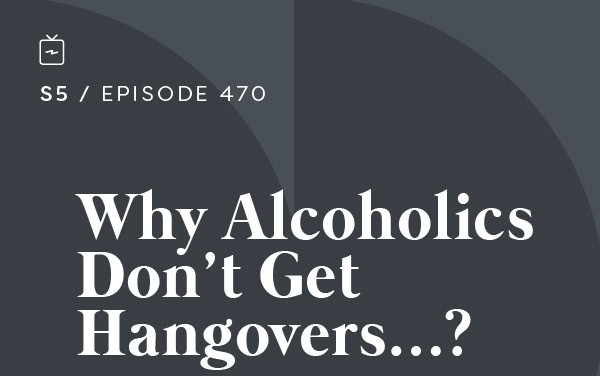Podcast: Play in new window | Download
Subscribe to the Recovery Elevator Podcast Apple Podcasts | RSS | More
Episode 470 – Why Alcoholics Don’t Get Hangovers…?
Today we have Lara. She is 40 years old and lives in Northwest Arkansas. She took her last drink on August 8th, 2019.
We are putting a call out for early sobriety interviews. We want to hear from you guys. Please email info@recoveryelevator.com.
Upcoming events: We start our six-week Ditching the Booze course, the what, the why and the how. This course is for Café RE members only and use the promo code “OPPORTUNITY” to waive the set-up fee if you are interested in joining us.
Registration for our 6th annual retreat in Bozeman, Montana opens Monday April 1st. We come together as a group and we laugh, we heal, we eat blueberry pancakes, play kickball, and have a great time.
Better Help: www.betterhelp.com/elevator – 10% off your first month. #sponsored
[04:12] Thoughts from Paul:
There was a great question during our Dry January class that asked “Why don’t alcoholics get hangovers?” Paul did a YouTube video about this but wanted to share more here.
Truth is, they do get hangovers, but they usually begin drinking before the full amount of alcohol can be metabolized in their system that they drank the day or night before. As tolerance develops with alcohol, the hangover gets pushed back later in the day the next day. A chronic drinker who drinks 10-15 drinks daily, won’t begin the hangover cycle at 8am the next morning, but more likely, they will experience the worst of the withdrawal effects later that day or evening.
Chronic drinkers are almost always experiencing a low to mid-grade hangover. In other words, they feel like shit all the time. First alcohol takes you to a place where you are no longer drinking to feel good, but to simply feel normal. They you are drinking to simply not feel like death. And then the worst place is when you are simply drinking not to die.
*HUGE ASTERISK* Alcohol is the most dangerous substance to detox from. If you have been drinking 5-8 drinks daily, for months or years, then it’s a very good idea to seek medical attention when detoxing.
Go Brewing. Use the code ELEVATOR for 15% off.
[09:26] Kris introduces Lara:
Lara is married and they have two dogs. After teaching preschool for 12-13 years she now teaches Pilates. She enjoys going to concerts and spending time outdoors.
Lara had limited exposure to alcohol until she went to college. While there, she found friends, and they drank regularly. What started out as being fun soon became a way for Lara to ignore her mental health issues that were creating a dark depression. After graduating and the issues getting worse, she ended up going to a psych ward for a few weeks and was diagnosed with bipolar disorder. She moved back home to live with her parents while she figured out what life was going to look like with the new diagnosis. She continued to drink in spite of the medications.
Lara went to grad school in Colorado and was surrounded by friends and the drinking felt normal. She wasn’t having major consequences until after getting married and she realized the drinking was happening all the time. Her husband ended up quitting drinking and while Lara supported him by quitting too, she didn’t feel that she had a problem.
Lara found herself reaching out to others to help support her as the spouse of someone quitting drinking. Over time she started realizing that recovery was her path as well.
Lara says that she has learned that she knows how to ask for help if she needs it now. She and her husband share a sobriety date and their life has done a 180. Alcohol is no longer an issue, and they just enjoy living life.
Lara’s favorite resource in recovery: Holly Whitaker’s book Quit Like a Woman.
Lara’s parting piece of guidance: Just find one person who you can talk to.
Recovery Elevator
You’re the only one that can do this, but you don’t have to do it alone.
I love you guys.




I loved this pod cast you both so brought the message, really touched my heart. Thank you Susanne